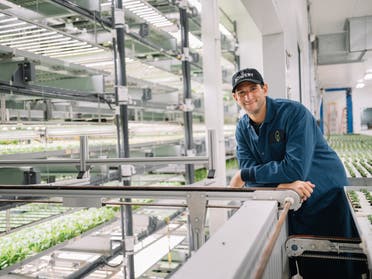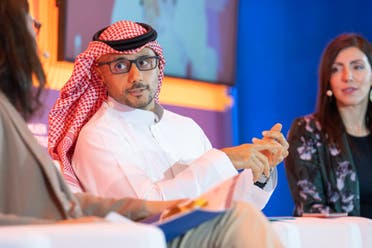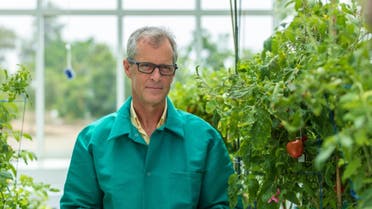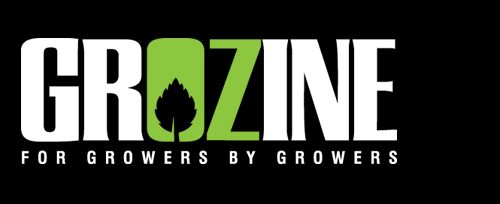
Vertical Farming Food Security | Ayush Narayanan, Al Arabiya English |
An agricultural industry expert has cautioned Middle Eastern nations against an “over centralization” of the food system linking security with demand.
Speaking to Al Arabiya English, Mark Tester, co-founder and Chief Scientist of the Red Sea Farms, called on decision makers to establish a platform that can foster healthy competition.
“Food security and food sufficiency do not go hand in hand,” explained Tester.
He added that countries in the Middle East, including GCC member nations, should diversify their sources of food, while simultaneously investing in technology that can accomplish internal sourcing.
Pointing to England’s current egg shortage as an example, Tester advised: “Don’t put your eggs in one basket and don’t source all your eggs from the same chickens in the same barn, because when that chicken barn goes down, bang, look at what’s happening in England.”
Food security equals national security
With so much focus on securing steady streams of food supplies for large populations, Irving Fain CEO and Founder of US-based vertical farm developer, Bowery Farming, noted that there is a close tie between national security and food security.
“The Middle East has known this for many, many decades, long before the whole rest of the world now are realizing this. This is a part of the world that has a real appreciation value for what we do,” said Fain in an interview with Al Arabiya English.
Bowery Farms stacks crops from the floor to the ceiling, indoors, and mimics sunlight with LED lights. Then, with a combination of robotics and automation, designed in-house, the growing is monitored and adjusted based on the data it collects.

Above: Irving Fain CEO and Founder of US-based vertical farm developer, Bowery Farming. (Supplied)
This system allows for scalability irrespective of geography and climate.
Red Sea Farms, meanwhile, uses temperature and light-controlled greenhouses to grow produce.
While the setup takes up more space than a vertical farm, Tester claimed that it is the more eco-friendly, economically viable alternative.
Tester is also a plant science professor at Jeddah’s King Abdullah University of Science and Technology (KAUST). With over 37 years of experience, he is leading a team of chemists, plant scientists and researchers at the institute developing seed technology and designing efficient greenhouses that can help grow plants in harsh conditions – perfect for the Middle East that is scorching hot and water scarce.
While Tester does not see large-scale adaption of vertical farms as a solution for food security in the Middle East, he believes that it can provide a micro-level service to densely populated communities.
“It [vertical farming] has a role and it’s certainly a very good business. But, it is going to take a very, very long time a make a very, very small contribution to global food security,” he stated.
For some, the only way is up
Founder and CEO of KBW Ventures Prince Khaled bin Alwaleed Al Saud considers vertical farming an important technology to further the industry and has invested in US-based vertical farm OnePointOne.
“[There is a] need for vertical farming to happen here in the Middle East so that our consumption and our imports can decrease from the upper 90s to hopefully the lower 50s, if not even lower than 50 percent,” Prince Khaled told Al Arabiya English.

Above: Prince Khaled bin Alwaleed bin Talal Al Saud at pictured at an event in Abu Dhabi. (Supplied)
About 20 percent of KBW Venture’s portfolio consists of food security, agtech and food tech, according to information furnished by the company.
In August, the UAE opened what it called the world’s largest vertical hydroponic farm – Bustanica – which according to reports is capable of producing over 1,000 tonnes of leafy produce.
According to estimates, the UAE has over 35,000 farms that use new-age tech and purpose-built environments like greenhouses and vertical farms. It contributes toward the Gulf state’s 2018 pledge to secure food with initiatives including diversification of food sources.
It aims to make the UAE “the world’s best in the Global Food Security Indexby 2051 and among the top 10 countries by 2021,” according to information shared on the UAE government website.
The country ranked 23 in the 2022 report, a marked improvement in score compared to previously published data. Saudi Arabia is in the 41’st place, while Finland ranked number one.
Costly, unsustainable imports
Middle Eastern countries import up to 90 percent of their food, according to a 2021 Alpen Capital GCC Food Industry report. The figure includes economic powerhouses Saudi Arabia and the UAE.
“This region dodged a bullet during COVID-19,” Prince Khaled said during a keynote at an Abu Dhabi event organized by the Milken Institute, referring to the possibility of an acute food shortage.
After the disruption of the global supply chain responsible for transporting foodstuff into import-dependent countries, GCC member nations adopted an early warning system, strictly monitored consumption and availability and sent out notices to traders to diversify their sources of food, while the leadership assured residents that they are well equipped to handle any fallouts from the dependency.
Following an assessment of the impact of COVID-19 on food, most GCC states set out to acquire or invest in companies that provide staples.
A plant-based future
Prince Khaled, who follows a vegan lifestyle, focuses his food investments on alternatives to meat, in addition to new farming technologies.
Without giving further details, he said that a “huge company” specializing in alternatives to meat will establish itself in the UAE and Saudi Arabia, and its operations will include manufacturing hubs and an R&D site.
Crediting the Saudi Public Investment Fund (PIF) for its “strategic investments” in food tech and sourcing, he stated that the Kingdom’s reliance on imported food will “decrease dramatically.”
Combined with seed tech developed at KAUST by Tester’s team and with potential investors like Fain’s Bowery Farms, the Middle East is positioning itself to achieve a level of self-reliance never seen before.
“I believe that a large part of Saudi Arabia’s citizens look forward to achieving food sustainability through innovation and technology. We’ve seen some interest from the Saudi government and the Saudi industry to look into these alternatives,” said Prince Khaled, acknowledging the existing government investment while calling for more to further develop this sector.
In 2021, the Kingdom’s Ministry of Environment, Water and Agriculture allocated $26.5 million (SAR 100 million) to develop and localize vertical farming technologies.
Water and the environment
While technology allows for farming to be pursued in the Middle Eastern deserts, the environmental impact from using desalinated water remains.
“Desalination is the process of removing salts from water and a by-product of the process is toxic brine which can degrade coastal and marine ecosystems unless treated,” the UN Environment Program explained on a data sheet.
“In most desalination processes, for every litre of potable water produced, about 1.5 litres of liquid polluted with chlorine and copper are created. When pumped back into the ocean, the toxic brine depletes oxygen and impacts organisms along the food chain.”
Saudi Arabia obtains about 50 percent of its drinking water from desalination, the 2019 report added.
“If you think about the options here in the Middle East… we use a fraction of water compared to traditional agriculture. It would take a very small amount of that water to grow a substantial amount of crops compared to if you were trying to grow it in a more traditional way,” the Bowery Farms co-founder Fain said.
“We use less than 90 percent of the water compared to traditional agriculture,” he said, adding: “at some point you need to farm” – reaffirming the connection between national security and food security.
Mark Tester recognized the drawbacks of using desalinated water to farm, but remains optimistic about reducing the impact by using new technologies.
Simpler means of farming, including the use of seawater instead of freshwater, using evaporative cooling instead of refrigeration-based cooling, and using direct sunlight through a greenhouse instead of a closed-indoor space that may require non-renewable sources of energy to function, were suggested by Tester as a means of reducing a farm’s carbon footprint.
Red Sea Farms has been commissioned by The Red Sea Development Company who has pledged to follow the UN-back Sustainable Development Goals, to supply fresh, sustainably sourced food to the residents on the upcoming development.
“We originated on the shores of the Red Sea, and we are producing produce, over ten tonnes a week. We’re in over 100 supermarkets in Saudi Arabia,” Tester said.
However, he called for an end to water subsidies in the region. “Farmers do not pay the real price for water anywhere in the Kingdom or the region.”
“And that just completely disincentivizes farmers. We have to not subsidize water. We have to encourage innovation. We have to encourage enterprise, encourage competition,” he said decisively.

Above: Mark Tester, co-founder and Chief Scientist of the Red Sea Farms. (Picture credit: KAUST)
Future of agri-tech
Tester spoke in length about the technological advancements made by his team, including the development of a heat-blocking molecule which can maintain natural light in an indoor space without compromising the temperature of the space.
He said that discoveries like this molecule, made possible through research into efficient greenhouse farming, can help further the industry and reduce the strain on natural resources.
Prince Khaled also recognized the impact of desalinated water on the environment and sees Saudi Arabia’s planned technological advancements as a solution.
“When it comes to the energy use for desalination, we have seen huge leaps and bounds from companies partnering with NEOM, for example, who have started to desalinate water in a very sustainable way.
“NEOM is aiming for Industry 4.0 and ‘net-zero’,” according to information available on the development’s website. The flagship mega-project’s water infrastructure department has made bold promises, including zero liquid discharge, no CO2 into the environment, fully operational on renewable energy sources, and all wastewater is treated, while solid byproducts will be used to make products.
The Saudi investor is also an advocate for animal rights and actively calls for a move to plant-based food.
“If you want to get into the climate change narrative, lamb and sheep are one of the highest contributors to methane and to the environment,” Prince Khaled said.
“From our standpoint, it’s also a conscious investment into preserving our environment and finding alternatives for countries and consumers to enjoy the luxuries without the downside of hurting the environment, hurting animals and hurting their own health,” he added.
Ultimately, Prince Khaled, Tester and Fain are hoping to reduce the environmental cost of farming through future technology that can enable the Middle East to secure its food system without compromising on the quality of produce.
The next farmers are a mix of scientists, AI and robots – “modern farmers” – as Bowery Farm’s Fain coins.
“If you’re writing software code, you’re a farmer. If you’re building automation, you’re a farmer. If you’re working in plant science, you’re a farmer. If you’re working on the supply chain or marketing, you’re a farmer.”
Tester echoes his thought: “We’re not just farmers, we’re also technology.”
Original Article: https://english.alarabiya.net/News/gulf/2022/11/30/Greenhouses-to-vertical-farming-The-Middle-East-s-path-to-foolproof-food-security



